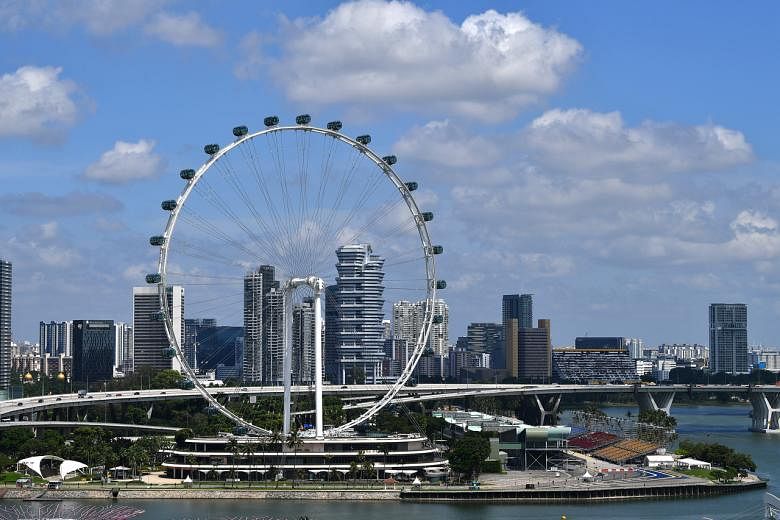SINGAPORE - Amid increased spending and an unprecedented four Budgets totalling $92.9 billion this year, Singapore expects to record its biggest deficit since the country became independent in 1965.
Announcing the Fortitude Budget in Parliament on Tuesday (May 26), Deputy Prime Minister Heng Swee Keat said the deficit of $74.3 billion will amount to 15.4 per cent of gross domestic product.
It is a combination of two forces: increased spending and expected drop in government revenue as social distancing measures reduce production and consumer spending that, in turn, will further drive down fiscal takings.
The revised operating revenue of $68.8 billion is lower than the estimated $76 billion.
It marks a big departure from the balanced or surplus Budgets the Government has long maintained over the years.
Mr Heng, who is also the Finance Minister, said the exceptional circumstances, sparked by the Covid-19 pandemic, have required the Government to dig deep into its pockets and also past reserves to bolster Singapore's economic and social resilience.
Another thing it has had to do is to set aside $13 billion in the Contingencies Fund and the Development Contingencies Fund. These are for urgent, unforeseen expenditures.
Under Singapore's Constitution, Parliament can create the funds to pay for unexpected requirements which are not provided for in the Supply Act. The President must consent to the advance.
Each year in the Budget, the Government puts aside a buffer of $3 billion altogether into the two funds, but the larger sum this time will allow the Government to react to any needs swiftly amid the fast-changing coronavirus situation, said Mr Heng.
Noting how four Budgets have had to be deployed in less than four months to help Singaporeans tide over the crisis, he added: "While we have the resources and the will to do what is needed in fighting Covid-19, we must continue to stay nimble and adaptive in this rapidly-evolving situation."
"With Covid-19, we are facing unprecedented levels of uncertainty - it is uncertain how the pandemic will evolve, if there will be a second or even third wave, and if, and when, vaccines will be available. The uncertainty on the medical front is fuelling the uncertainty in the global economy."
He said the money will let the Government respond swiftly to any unforeseeable developments, such as if the medical or economic situation deteriorates and more public health or fiscal measures must be put in place.
"We will do our best to avoid this, but we must be prepared for any eventuality," Mr Heng added.
The Cabinet, President Halimah Yacob and the Council of Presidential Advisers were all briefed before the funds were set aside, he said, stressing that the use of the funds is subject to proper governance and accountability.
While the Finance Minister may use money from the contingencies funds if he is satisfied there is an urgent and unforeseen need, the money can be advanced only if the President concurs as well.
After that, the amount has to be included in a Supplementary Supply Bill or Final Supply Bill, which will be presented to Parliament to be voted on.
"This approach is appropriate and prudent, given the fluid situation which may require the Government to act swiftly in the coming months," said Mr Heng.












